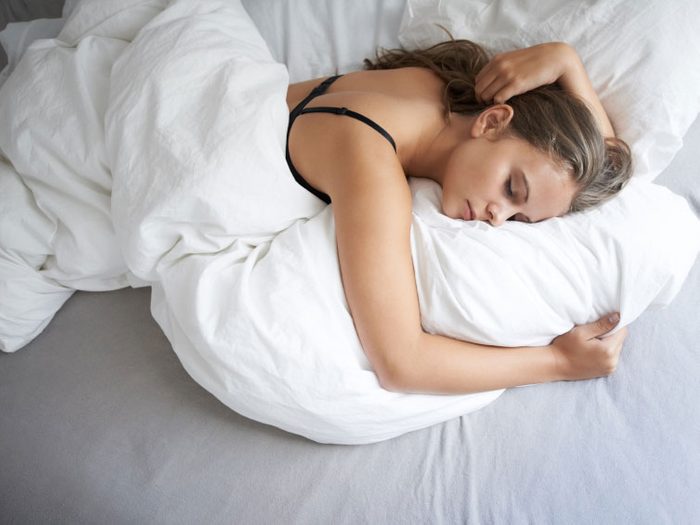
What your sleep habits reveal about you
You may think sleeping is a quiet activity. But how and when you sleep can often speak volumes about your well-being and lifestyle. “Our sleep habits are quite closely related to health,” says Dr. Annie Vallières, a psychologist at Laval University in Quebec City. “Your sleep habits can also tell about you as a person, but it’s a little bit more subtle.” Here are nine sleep habits that may reveal secrets about you.

You’re a morning lark, not a night owl.
Whether you’re a morning or night person is a clue about your intelligence type. Morning larks are more likely to get better grades in school, as shown in studies of high school and college students. But night owls score higher in general mental ability, which is associated with greater career success. So either way, you win; you’re smart.

You can drop off at the drop of a hat.
“A lot of people think they sleep very well because they fall asleep during the day. We hear this a lot in the clinic: ‘Look, I’m a good sleeper because I can fall asleep any time I want!'” says Vallières. “But it’s not normal.” This trick is actually a telltale sign that you’re a miserable sleeper. It can even be a symptom of undiagnosed sleep apnea.
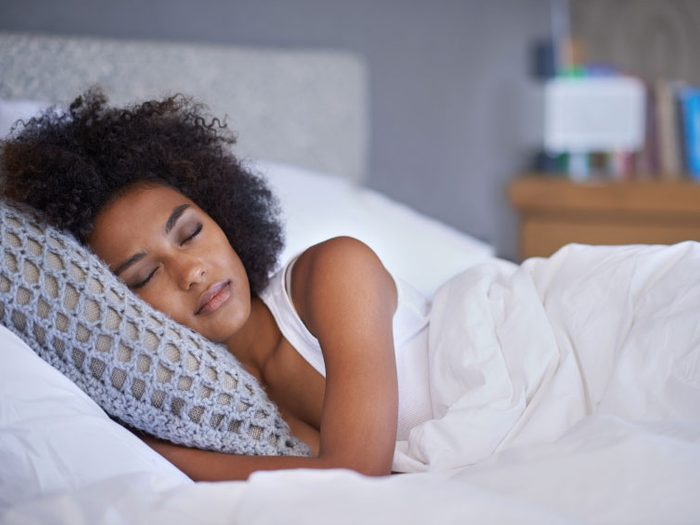
Your sleep is more disrupted at a particular time of the month.
If you find you’re sleeping badly right before you get your period, then this could be saying something big about you: you’ve entered perimenopause. Before that, women don’t sleep differently depending on where they are in their menstrual cycle. But as they move into perimenopause, their brainwaves show less deep sleep in the days before their period.

You wake up and fall asleep when your partner does.
When your spouse leaves for Slumberland, do you travel on the same train? Or does one of you get up early while the other sleeps in? This one is fun: If you tend to fall asleep and wake up together, it’s likely you’re happy with your marriage. A study last year at the University of Pittsburgh found that the more a woman’s sleep-wake schedule matches up with her spouse’s, the higher her marital bliss.

You regularly shortchange your own sleep.
It’s a lesson taken right out of Goldilocks and the Three Bears. Researchers know that both sleeping too much and sleeping too little are linked with health and cognitive problems. So it’s important to sleep just right (according to the Canadian Sleep Society, that’s often around eight hours for most adults). What else does it say about you if you’re never giving yourself enough time to sleep? You may be struggling to maintain a healthy weight. That’s because shortchanging our sleep seems to make us hungrier and crave high-carb, high-calorie food.

You’re sleep-deprived and you stay up late.
If, in addition to shortchanging your sleep time, you’re going to bed very late at night, then you may be a bit of a pessimist. People in this sleep pattern tend to experience more negative thoughts. They also worry about the future, and rehash bad experiences from the past. Better to get enough sleep, but if you can’t, then going to bed at an earlier hour will make some difference.
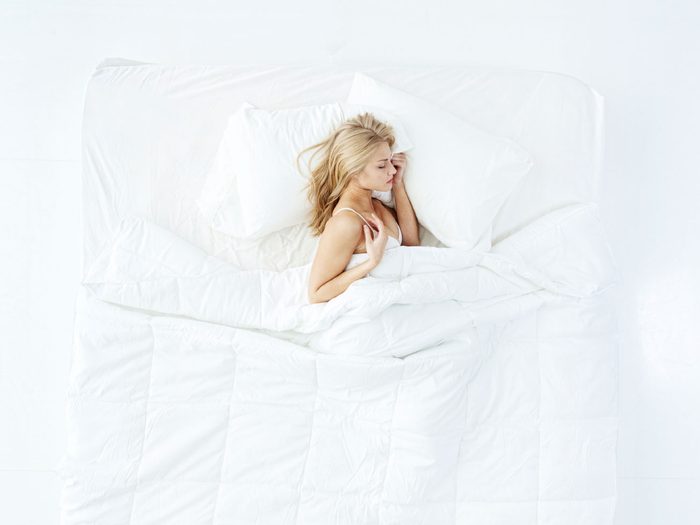
You sleep on your side.
You may be less likely to get Alzheimer disease later in life. More research is needed, but experiments with rodents at New York’s Stony Brook University showed that side sleeping – instead of sleeping on the back or front – makes it easier for the body to circulate waste out of the brain. It’s believed that brain-waste buildup is a factor in developing Alzheimer’s.
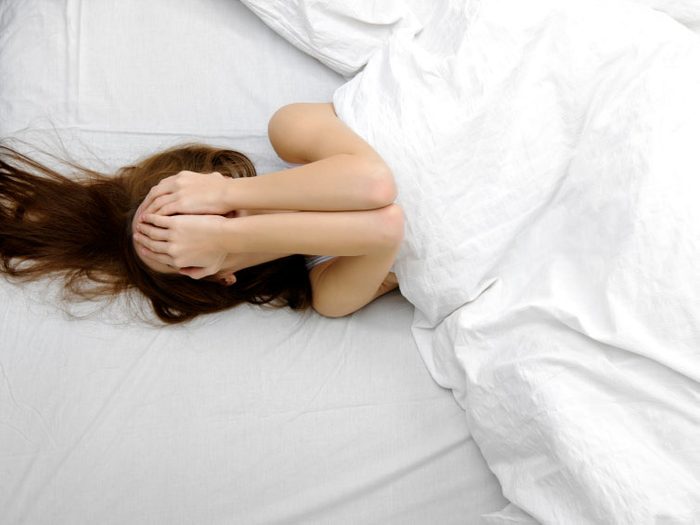
You can’t fall asleep for the life of you.
In a worldwide survey by Philips Respironics, over half the respondents reported that the biggest disruptor of their sleep was either worrying about work or fretting over finances. Naturally, it’s hard to fall asleep when your mind is churning. And Vallières points out, too: “When you’re worrying about work and money, sometimes what you do is work more and try to get more money, doing it into the evening or late at night. So you cut into your sleep time.”
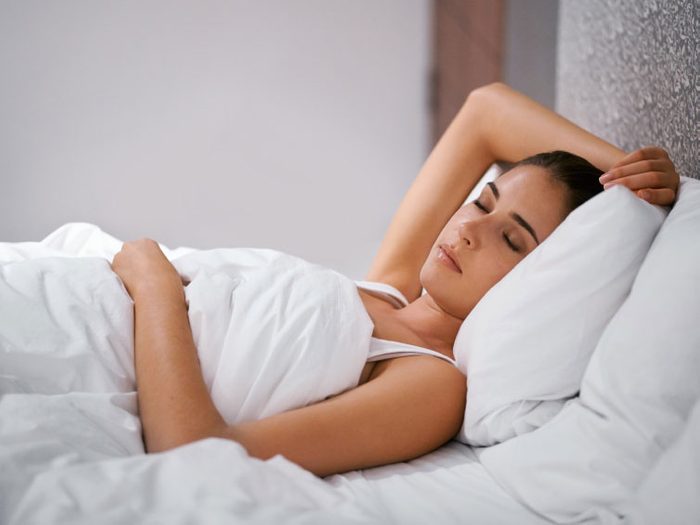
You’re sleeping longer than you used to.
A recent study of adults in their 40s and older found that those who slept more than eight hours a night were more likely to have a stroke. That risk was significantly higher for people who used to sleep for a shorter amount of time. The University of Cambridge researchers don’t know if the longer sleep is a symptom of or a contributor to the health problems. But they do know it’s worth a chat with your doctor.
Related:
• Quiz: How sleep deprived are you?
• How sleep affects your health
• 10 things preventing you from sleeping
